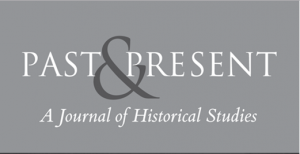by Prof. Rodney Hilton (University of Birmingham)
Moscow, Autumn 1953
“…Only a small number of students study in university history departments. In Birmingham University, for example, there are between twenty and thirty students in each of the three years. When they finish university, the students in history departments take exams for the degree of BA. A very insignificant number of graduates (not more than two or three students each year) have the opportunity to continue study as postgraduates, so that the number of postgraduate students in history does not usually exceed ten. The basic factor that limits the number of postgraduates is a lack of material resources and sources of finance for their research work. Various capitalist organizations finance research primarily into those problems whose resolution is necessary to the interests of capital and the war industry…
…The academic work of postgraduates in the history faculties of English universities usually begins after the award of the degree of BA, that is, after a three-year university course. The postgraduate chooses the topic of his research on the advice of the supervisor allocated to him. After two years the student takes a qualifying exam, which admits him to submission of a thesis. The thesis should be written as an independent scholarly work, but usually it contains a comparatively limited amount of material and in character it is to a significant extent a work of compilation. If the dissertation is successful, the student obtains the degree of MA (except at Oxford and Cambridge, where all BAs can acquire the degree of MA on paying the required fee). If the MA graduate can find the funds from private individuals or receive a stipend (from the university or the state), he can begin to prepare a Ph.D. thesis. The registration period is usually three years. The Ph.D. thesis is a more independent piece of research, and is based on a broader source base than an MA thesis.
The training of postgraduates in English universities is fundamentally different from the training of Soviet academic cadres. Individualism and the absence of co-ordination are the distinguishing features of academic work in England. The choice of a thesis topic is usually fortuitous. Therefore, the topics chosen often have no serious scholarly significance.
The academic work of individual research and teaching institutions in England is not co-ordinated. All institutes and universities jealously defend their ‘independence’. Usually there is not even any planning in history faculties. Professors, lecturers and research students sometimes express no interest in their colleagues’ work.
In English universities there are some attempts to create collective scholarly works on history. Research students sometimes work together on the solution of a certain problem. In such cases a professor of history may exert influence over his research students to draw them into topics associated with his own work. There have been productive examples of such work in the past, for example, among research students in the history faculty of Manchester University. The late Professor T. F. Tout, author of Chapters in the Administrative History of Mediaeval England, created a whole school of historians studying the structure and personnel of central government in medieval England.59 At the same university a group of research students under the leadership of the late Professor George Unwin worked on problems of the economic history of England in the late medieval period.a Professor R. H. Tawney trained a number of young historians studying problems of the economic and social history of the sixteenth and seventeenth centuries.b,60
However, after the death of its leader the collective usually disperses. Bourgeois historical scholarship lacks the guiding and unifying influence of a truly scientific philosophy and methodology. Long-lasting collective work is impossible if the collective is not guided by a single research outlook. The nearest thing to collective work is the research on English history published by Cambridge University. I have in mind the well-known Cambridge Histories.c
The method of creating these collective works is the following: the editorial board for the volumes invites well-known historians to write articles on specific themes. In this process, a major role is played by personal contacts rather than academic criteria. Everyone works in isolation, without knowing the overall plan for the work or meeting the other authors. There is no collective discussion of the finished articles. As a result, each volume is just a collection of individual essays without an overall guiding principle, with no single unifying idea or plan. Individual essays may be useful, but readers do not obtain an integrated picture of the process of historical development in a given epoch.
Thus, academic work in history in English universities is mostly the isolated work of individual people…”
The passages above are taken from a speech Rodney Hilton made to the history section of the Soviet Academy of Sciences in the autumn of 1953 whilst part of a visiting delegation of British academics sympathetic to the Soviet Union. It was published-in Russian-as R. Hilton, ‘On Historical Scholarship In England’, in Voprosy Istorii (1953), No. 10 This translation is by Maureen Perrie and was made in November 2016 with revisions in July 2018.

